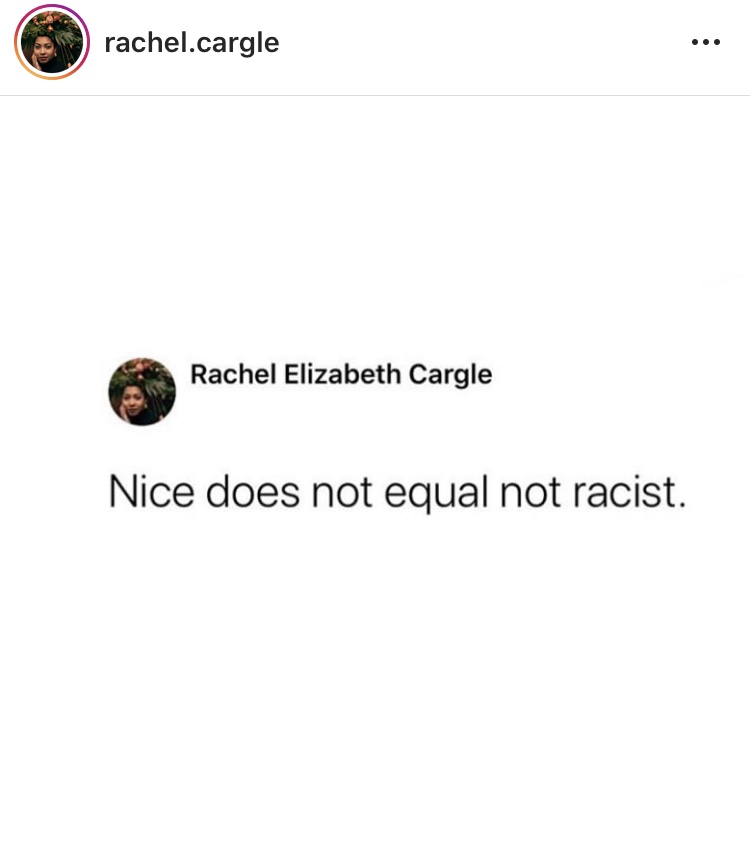I have a lot to learn. And unlearn.
I have been spending time this week listening, seeing and digging deep around the issues of racism, white supremacy, white fragility, what it means to practice being an ally and anti-racist. As I hope many people in the world have.
The process is uncomfortable. AND IT IS SUPPOSED TO BE.
In considering how we (One Heart Counseling Center), could be of service, I thought about how many hard conversations we have and facilitate as therapists. About all kinds of topics.
Therapists help their clients see blindspots and, hopefully, build skills that support clients in being open to seeing those blindspots beyond the couch (or Zoom these days).
So, I thought we could support the change that needs to happen by offering some ways to deal with conversations or truths that bring up our blindspots.
These moments might come up when you are interacting on social media about the issues alive in the collective today. Or, these moments might come up in tough conversations with your loved ones.
We all have blindspots. ALL. Me too.
Blindspots are what we don’t know that we don’t know.
Relationships and interactions with others are DESIGNED to bring up these blindspots.
Just because we don’t know that we don’t know something and have good intentions, that simply does not cut it.
Just because you didn’t mean to run over your neighbor’s cat doesn’t mean the cat didn’t sustain bodily harm and your neighbor is unaffected. Your neighbor is devastated AND their cat is hurt or dead. I don’t want to minimize the current situation, I simply want to find a relatable place to get this point across. If you don’t become aware and/or face the feelings that are a consequence of the lack of awareness that caused the accident, chances are high that you will do something just as harmful (or worse) again.
We are all going to make mistakes. We all have blindspots.
One of the BEST things we can do is be open to seeing the blindspots and have some humility so we can learn and do better.
Here are four ways that you can approach and deal with uncomfortable truths and conversations:
ONE: Recognize that your defenses are going to come up.
When you read things on social media about racism or have a conversation with your loved one where a blindspot is pointed out to you, the ego is going to employ defenses. Those psychological defenses (click on that link to find out more about your defenses) are going to come to the rescue of your ego without any conscious awareness. They just show up.
So, if you start to feel uncomfortable, chances are, defenses are already or are about to be activated. If you are aware that your defenses might come up ahead of time, you have a better chance of not being overpowered by them.
Your defenses BLOCK connection and information from coming in.
TWO: Breathe and try again.
When your defenses come up, take a minute. Breathe. Remind yourself to stay open. Try again.
Remember that when it comes to the issues of racism or any kind of divisive or maladaptive beliefs, they are usually deeply and unconsciously programmed. So, it takes repetition to de-program. You will have to confront them multiple times.
THREE: Believe people when they tell you their experience.
Brene Brown talks a lot about empathy in her work. She says that in order to empathize, you must feel or tap into someone’s experience as they experience it. Not what you imagine it to be. Not what you think should or should not be true about how it is for someone.
If black people are telling you they are exhausted, believe them. If black people are telling you that they live in a constant state of vigilance or trauma, believe them.
If your spouse is telling you that they feel dismissed by you. Believe them.
If your child is telling you they feel hurt by something you said or did. Believe them.
Get curious. Find out more.
When someone tells you how they really feel, it’s not a time to be defensive. It is a time to be open and willing to investigate.
I’ll never forget the day when I confronted my mother about the times that she became physically abusive. Our relationship changed forever. It changed because she did not defend herself. She did not explain anything to me. I did not sugar coat anything. I shared how I really felt and she listened. We moved forward from there because I knew she got how I felt. Maybe she processed what that conversation was like for her with my dad. But she did not make it about her feelings when it needed to be about my feelings.
Listen. That’s all. It’s harder than it seems.
FOUR: Try to let go of whether this means you are good or bad.
Trying to prove that you weren’t trying to do anything harmful or that your intentions were good is irrelevant in the moments when a blindspot is coming up. Your explanations don’t matter. Maybe they will later, but not now.
Getting fixated on being “good” and making sure others know that is blocking information you need about your blindspot.
You need that information because that blindspot is wreaking havoc on the well being of your relationships and ability to connect. Chances are, if a blindspot is coming up in one place, it is happening in all parts of your life to some degree.
We are here to learn and grow. We can come from that place.
Learning how to be open in the face of uncomfortable truths and difficult conversations will serve you now and always.
If you need support in building these skills, contact us. We would love to support you in discovering and navigating blindspots.

